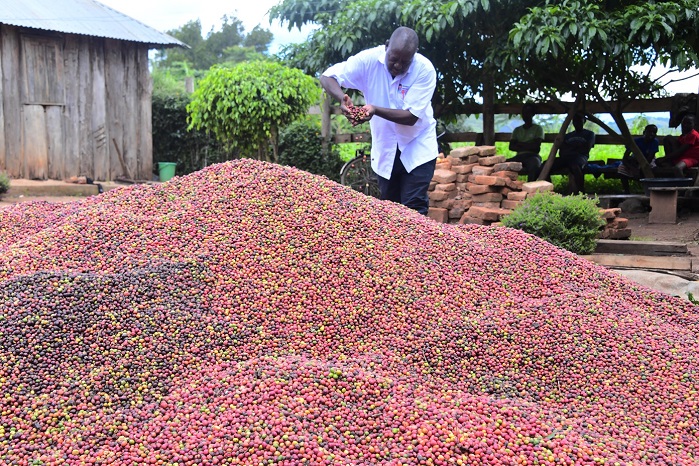
HABARI DAILY I Kampala, Uganda I A body that will be in charge of approving farm inputs which include drugs and vaccines for use in the agricultural sub sector has been unveiled. Known as the Uganda Food and Agriculture Authority, the body will make Uganda’s agriculture produce competitive, among other things
Speaking during the launch of the consultancy to establish the same recently, Frank Tumwebaze, the minister of agriculture, animal industry and fisheries said his ministry was for many years straddled between control and regulation.
“The ministry of Health was handling regulation of animal drugs, while the National Drug Authority was handling regulation of animal drugs and pesticides. People from the veterinary sector were saying we cannot develop policy on disease control and then have another body outside us to regulate the inputs,” he said, adding that finally, that argument has been settled.
“We have agreed with the ministry of health, and the cabinet has taken a decision that the Uganda Food and Agriculture Authority, under the ministry of agriculture, becomes the responsible body for regulating veterinary inputs. These include drugs, vaccines, and equipment. This will enable us to regulate all veterinary inputs so that our policy and what we use to implement it are aligned,” he said.

He said the new body will also regulate food standards. “UNBS for clarity is a general standards body. But the Uganda Food and Agriculture Authority will possess the competence to regulate food standards and safety, animal drugs and farm inputs. It will also regulate all agricultural chemicals which have been regulated under the Agro chemicals Board in the ministry of agriculture.”
Tumwebaze said the new body will now take over some functions and allow the agriculture ministry to handle policy implementation and development.
Bright Kanyontore Rwamirama, the minister for animal industry said the new body will go a long way towards eliminating venereal diseases in herds and livestock.
Odrek Rwabwogo, the chairman, Presidential Advisory Committee on Exports and Industrial Development (PACEID), said true to his promise, Tumwebaze committed to amalgamating food safety laws and regulations before year end.
“He committed to having all food safety and related laws to be amalgamated before the end of 2023, to form a basis of the National Food Safety and Agriculture Bill constituting the National Seed Policy, National sanitary and Phytosanitary policy, among others,” he said at the function held at Serena Kampala hotel, Wednesday.
Rwabwogo said the country’s competitiveness is measured not on its size, natural resources it has, but quality of leadership in its institutions and performance of the private sector, as well as standards of its industrial products.
“People are not usually enthusiastic about issues of standards, pest control, animal health, and quarantine for animals. But if we are to penetrate markets, we have to put the issue of standards at the forefront,” he said.
He underscored the need for food safety, animal feeds and standards of agricultural inputs if the Ugandan economy, which is solely based on agriculture, is to make headway.
“When we embarked on this discussion about food safety as a way of boosting agricultural exports, we brought to the fore things that were not in the public domain such as food safety, chemicals, feeds, enforcement. We have to uphold these for our homes and children and then for our cities, hotels and restaurants to promote public health,” he said.
Rwabwogo said they have chosen to approach the export market differently, by doing market research and appointing seven trade representatives around the world.
“When it comes to this survey about food safety, we are connecting with eight African countries to try and understand the continental standards and align with the EAC and standards in other regional trade blocks. Now that we have found the markets, we have to develop capacity and standards to supply them,” he said.
Rwabwogo said concerning the export promotion fund which was launched at State House Entebbe early this year, by April 2024, it would be operational after the Government had infused the Euro10m initial investment it had promised. He expressed pessimism about the Government’s inclination to ratify international trade pacts.
“When I was in the US recently an organization called the Global Alliance for Trade Facilitation approached me and said Uganda has implemented only 35% of the trade agreements that need to be signed. Some of our neighbors are standing at 85%. They said we are slow on legal and regulatory improvements, and have not notified the WTO on categoresee frameworks. The AGOA and EU agreements are also set to expire on January 1 2024.”
The Uganda Food and Agriculture Authority framework has been developed by consultants provided by Trade of Agriculture Safety and Efficiency in East Africa (TRASE), coordinated by PACEID. The consultants include Owen Fraser from the USA, Jean Kamanzi from Canada and Kadera Chagema from Kenya.




